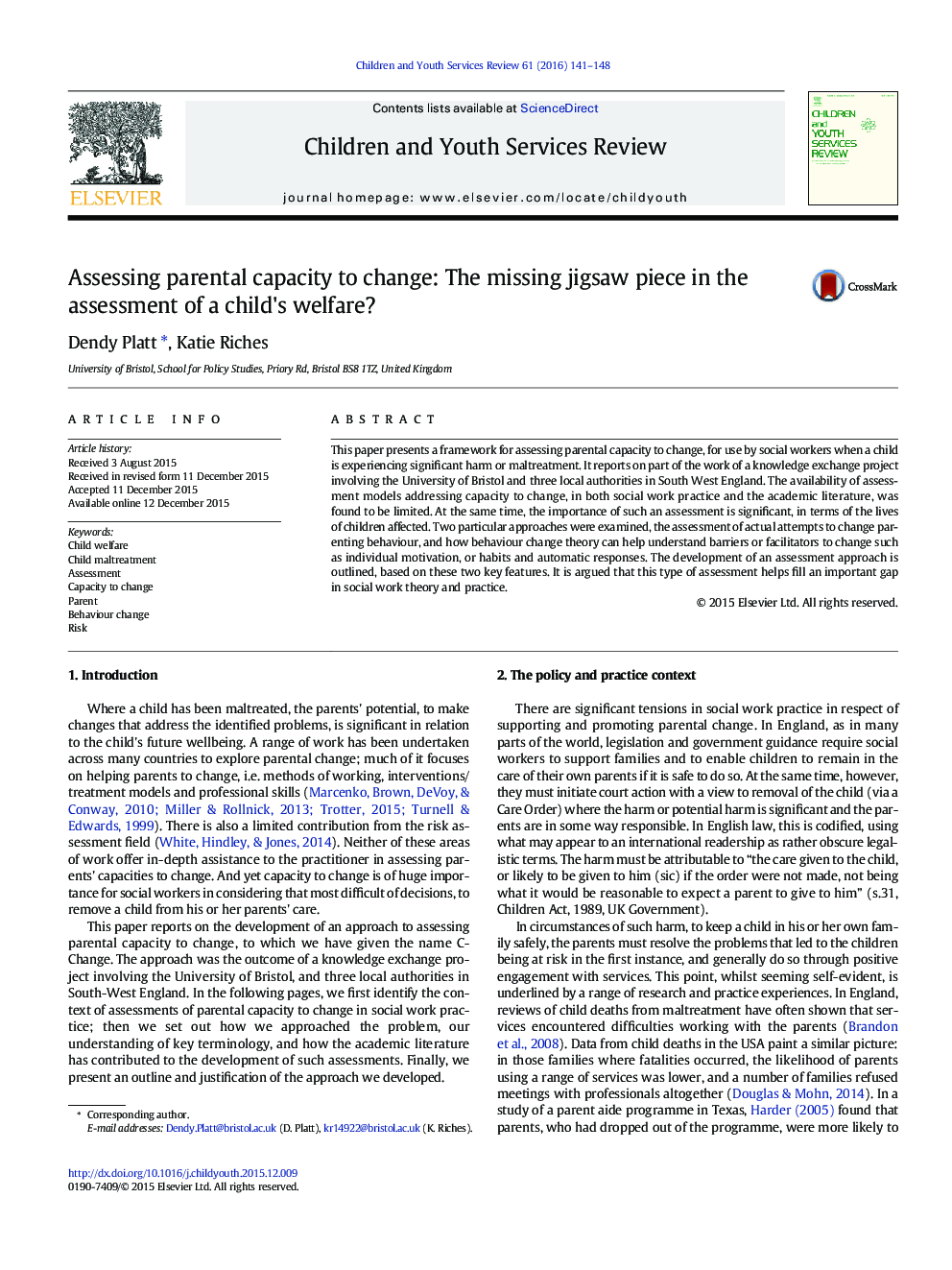| کد مقاله | کد نشریه | سال انتشار | مقاله انگلیسی | نسخه تمام متن |
|---|---|---|---|---|
| 345884 | 617772 | 2016 | 8 صفحه PDF | دانلود رایگان |
• Assessing parental capacity to change is an important part of social work assessments of children and families.
• There has been limited development of practice methodologies for assessing capacity to change.
• The authors present a two-part approach to assessing capacity to change.
• One part of the approach is the assessment of barriers to and facilitators of change.
• The other part draws on goal attainment scaling to test parents’ abilities to change (Harnett, 2007).
• Applying both parts ensures an opportunity to change is combined with an understanding of the potential for change.
This paper presents a framework for assessing parental capacity to change, for use by social workers when a child is experiencing significant harm or maltreatment. It reports on part of the work of a knowledge exchange project involving the University of Bristol and three local authorities in South West England. The availability of assessment models addressing capacity to change, in both social work practice and the academic literature, was found to be limited. At the same time, the importance of such an assessment is significant, in terms of the lives of children affected. Two particular approaches were examined, the assessment of actual attempts to change parenting behaviour, and how behaviour change theory can help understand barriers or facilitators to change such as individual motivation, or habits and automatic responses. The development of an assessment approach is outlined, based on these two key features. It is argued that this type of assessment helps fill an important gap in social work theory and practice.
Journal: Children and Youth Services Review - Volume 61, February 2016, Pages 141–148
